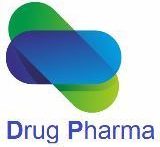Vitamin C foods: what to eat

Vitamin C, also known as ascorbic acid, is a water-soluble vitamin. This means it can’t be stored in the body and that you need to eat a balanced diet that includes plenty of vitamin C-rich foods to get a steady supply of this essential vitamin.
Why is vitamin C so important?
Vitamin C plays an important role in keeping the body functioning properly in many ways, including:
- protecting cells
- keeping tissues healthy, including arteries, bones, muscles, blood vessels, and cartilage
- maintaining healthy skin
- helping to heal wounds
- helping the body to absorb iron
- boosting the immune system
- Which foods are high in vitamin C?
Adults aged 19 to 64 are advised to get around 40mg of vitamin C every day. See how these vitamin-C rich foods stack up:
- oranges – 100g contains 52mg of vitamin C
- strawberries – 100g contains 57mg of vitamin C
- blackcurrants – 100g contains 200mg of vitamin C
- red peppers (raw) – 100g contains 126mg of vitamin C
- broccoli (steamed) – 100g contains 60mg of vitamin C
- Brussels sprouts (boiled) – 100g contains 60mg of vitamin C
- As a guide, 1 large orange a day will supply you with the vitamin C you need. Too much vitamin C (more than 1,000mg a day) may cause side effects like stomach pain, flatulence, or diarrhea.
What happens if I don’t get enough vitamin C?
Over time, not getting enough vitamin C leads to the body not being able to produce collagen. Collagen is a protein found everywhere in the body, particularly in the skin, bones, and connective tissue. Without collagen, tissues can break down and the body will find it harder to repair itself. If this happens over a period of more than a few months, it can lead to a condition called scurvy.
Symptoms of vitamin C deficiency can include:
- weakness and tiredness
- pain in the muscles and joints
- bruising easily or tiny red-blue, bruise-like spots on the skin
- dry skin and splitting hair
- nose bleeds, swollen or bleeding gums, and tooth loss
- bleeding into joints and joint pain
- weight loss
- problems with wound healing and fighting infections
- changes in the bones
When to see a doctor
Because symptoms of vitamin C deficiency can quickly become worse if not treated, speak to a doctor or health practitioner as soon as you think you might be experiencing vitamin C deficiency. Your doctor may perform a blood test and scans and will be able to advise on a vitamin C supplement if necessary.
Key points
- vitamin C keeps cells, blood vessels, bones, skin, and cartilage healthy and helps to heal wounds
- you need around 40mg of vitamin C a day
- oranges, strawberries, blackcurrants, red peppers, broccoli, and Brussels sprouts are good vitamin C food sources
- prolonged vitamin C deficiency can lead to scurvy
- vitamin C deficiency can be treated easily if diagnosed promptly by a doctor
Author: Helen Prentice
5 references
Vitamins and Minerals [Internet]. Bupa. 2020. bupa.co.uk. [cited 4 January 2021]. Available here
https://www.bupa.co.uk/health-information/nutrition-diet/vitamins-and-minerals
Vitamins and Minerals [Internet]. NHS. 2020. nhs.co.uk. [cited 4 January 2021]. Available here
https://www.nhs.uk/conditions/vitamins-and-minerals/vitamin-c/
Explore Food Calculator [Internet]. British Nutrition Foundation 2021. foodafactoflife.org.uk. [cited 4 January 2021]. Available here
https://explorefood.foodafactoflife.org.uk/Calculator/Recipe
Vitamin C deficiency [Internet]. Patient.info. 2018. [cited 4 January 2021]. Available here
https://patient.info/healthy-living/vitamin-c-deficiency-leaflet
Do collagen supplements work? [Internet]. Healthily. 2021 [cited 7 February 2021]. Available here
/vitamins-minerals/do-collagen-supplements-work
